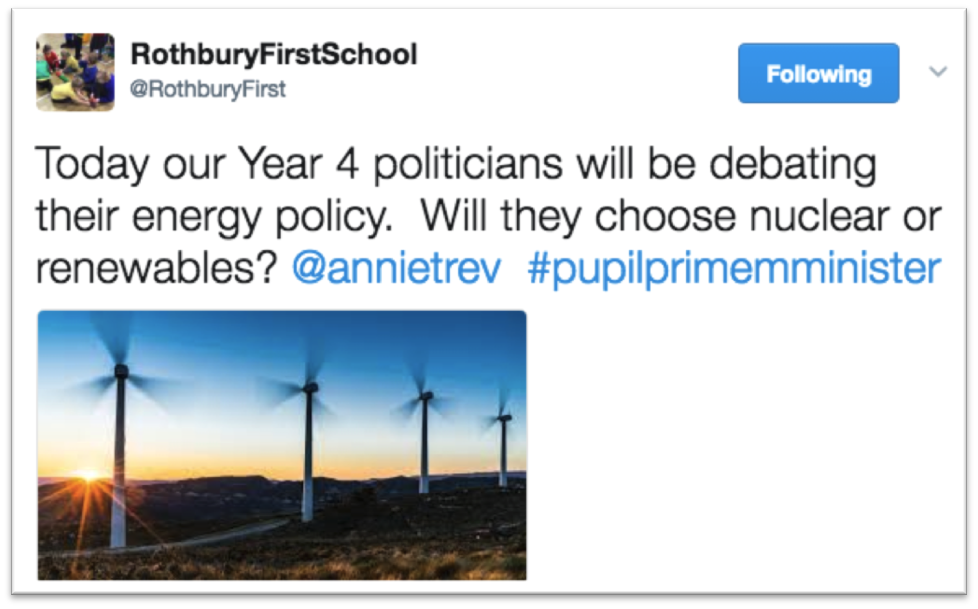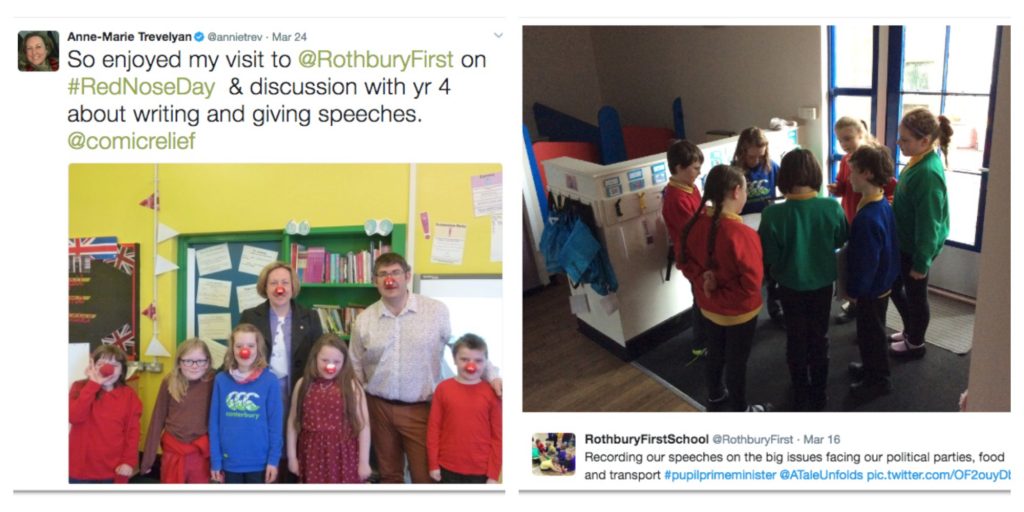Digital projects in a rural setting
One of the obvious benefits of living in a digital age is that, regardless of location, we’re able to connect to the wider world on a global platform. This is particularly significant in remote and rural areas, where limited public transport links can make regular travel more of a challenge.
Colin Grimes, a primary teacher from Rothbury First School in Northumberland, is keen to promote digital literacy as a tool to bring the outside world into the rural classroom. His pupils recently completed Pupil Prime Minister – a 10 lesson teaching resource designed to encourage KS2 children to become politically active through literacy and filmmaking projects.
“Like many primary teachers, I am always looking for something different to motivate my class to write and give real-life context for their work. With this in mind, and already having used A Tale Unfolds resources before, I decided to take a look at their Pupil Prime Minister project.
Being in a rural community places some limitations on our school. We don’t often have the ability to take part in trips due to time/distance/money constraints and part of my application to the school was to acknowledge these issues and look at how we could use existing technology in the classroom to bring the outside world into our school. Coupled with reading lots of work on how digital technology can be used to enhance writing by giving it purpose and the push to embed British Values into our curriculum, Pupil Prime Minister seemed like the ideal vehicle to use.
The premise is simple. Children investigate how parliament works at a very basic level; constituencies, MPs, law-making and voting before splitting the class to form two political parties. As part of this, the excellent materials put together by the team to support the project give context – getting the skills of ex defence minister Peter Kinfoyle on-board is a stroke of genius that gives an excellent insight into the workings of parliament and politicians. 
Living in a community heavily affected by renewable energy, the children have been interested in how we balance the need to generate power coupled with the need to preserve our environment. Similarly with transportation. Our school catchment is poorly served by public transport but is physically challenging by bicycle. Having these debates in class has helped us to see that we cannot judge the whole nation by our tiny part of it – conversely it has shown that maybe our politicians are out of touch with our rural economy at times!
The children quickly grasped the idea that they needed to write speeches if they were to “perform” them for camera. We experimented in filming an improvised speech and looked at how it doesn’t always sound coherent. When our local MP visited, we looked at how she writes speeches and talked about how it is easier to have more content than you use. The example she gave was of her maiden speech in the House of Commons where she was limited by time at the last minute – traditionally a new MP is give 9 minutes and hers was cut to 5 by the Speaker just before she started. Having someone of this stature come into talk to the children whilst they were involved in the project was priceless.

Digital literacy is much more effective when it is used to give children an audience for their work. If we film work then leave it on iPads etc then we are not providing the outlet required for work to improve. In my experience, the best way to share work is either via a school blog, publishing on the school website or on the school social media feed. My class have loved the feedback they have had on their work from other staff in the school and from the wider educational audience available through social media. By showing them that the work in their books can have an effect on the world outside their classroom they have been inspired to write more, use better vocabulary and to write for purpose.
Colin’s class have since submitted their finished political party speeches to LitFilmFest – the brand new KS2 festival showcasing children’s writing and filmmaking efforts at the BFI Imax in London. You can watch some of them here:
To combine politics, literacy and filmmaking in your own classroom, check out Pupil Prime Minister. For more details on the upcoming LitFilmFest, visit litfilmfest.com/categories











